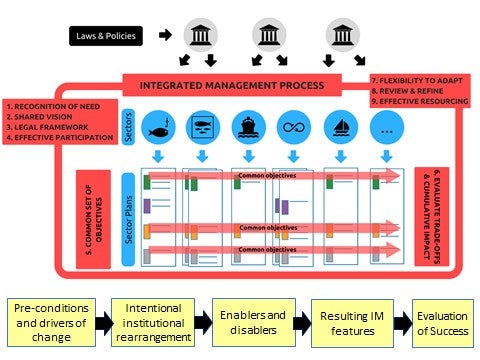Sondra, a PhD candidate in Courtenay Lab, recently co-led a collaborative book chapter for an OceanCanada Partnership book initiative with Dr. Rob Stephenson (Expected publication in 2021). Sondra’s supervisor Dr. Simon Courtenay was included among the eight other co-authors from across Canada. The book chapter focuses on the ‘bright spots’ in integrated management of Canada's oceans and coasts. The chapter evaluates seven integrative initiatives to summarize lessons for future practice significant for aligning long-term sustainability, management, and community development. Cases include Saint John Harbour, the Hawke Box, Musquash Estuary Marine Protected Area in the Atlantic, Tarium Niryutait Marine Protected Area in the Arctic, and Marine Plan Partnership, West Coast Aquatic, and Gwaii Haanas in the Pacific. Cases were analyzed using a novel framework based on four pillars of sustainability – economic, institutional/governance, social, and ecological --from Stephenson et al. (2019) to organize and compare case study data (Figure 1).

Figure 1. A framework and lens for development and evaluation of integrated management (IM) (after Stephenson et al. 2019). IM, a process that links the planning and management of diverse activities (blue) has nine key features (red) and five phases of implementation (yellow).
Among the conclusions offered by the chapter is that there is no “one size fits all” management strategy as there are different ways to operationalize similar concepts within different contexts (e.g., capacity, stakeholders, objectives, scale). This book chapter helps practitioners and researchers alike to better understand Canada’s progress towards integrated management. And this may further help in designing more effective policy and programs that are inclusive of diverse stakeholder interests while ultimately ensuring sustainability in for marine systems.
Other reading:
- Ocean Canada Partnership Publications: https://oceancanada.org/all-publications/
- Eger, S. 2020. [Review of the book Marine Spatial Planning: Past, Present and Future, by Kira Gee and Jacek Zaucha]. Ocean Yearbook: Brill | Nijhoff, 34(1):614-618, https://doi.org/10.1163/22116001-03401037
- Stephenson, R. L., Hobday, A.J., Cvitanovic, C., Alexander, K.A., Begg, G.A.,Bustamante,R., Dunstan, P.K., Frusher, S., Fudge, M., Fulton, E.A., Haward, M., Macleod,C., McDonald, J., Nash, K.L., Ogier, E., Pecl, G., Plagányi, É.E., van Putten, I., Smith, T. and T.M. Ward. 2019. “A practical framework for implementing and evaluating integrated management of marine activities.” Ocean and Coastal Management 177:127-138.